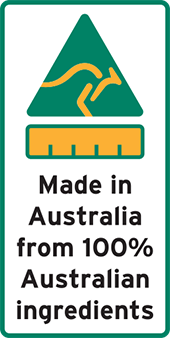
health benefits
Healthy Fats Play A Key Role In Optimising Health, But Don’t Just Take Our Word For It. Read And Watch Below To Help You Make Informed Decisions.
Our grandparents and great grandparents seemed to be on the right track when it came to optimizing health. Reduction of processed foods and adding good, healthy, minimally processed fats back into our diets is being shown to improve our general wellbeing.
The Sunrise program on Channel 7 discusses the advantages of natural oils and animal fats:
Books to read to find out more:
(Include covers of each of the books and links to where to buy them)
The Truth about Saturated Fats - by Mary G Enig PhD
Sweet Poison & Toxic Oil - David Gillespie
I Quit Sugar - Sarah Wilson
The Skinny on Fats - Mary G Enig PhD & Sally Fallon
The Fat Revolution & Great Health is a Piece of Cake - Christine Cronau
Websites with interesting reading:
Weston A Price - www.westonaprice.org
Dr Eric Davis - www.ericdavisdental.com
Nutrition Diagnostics - www.nutritiondiagnostics.com
Mercola - www.mercola.com
Living Valley Springs - www.lvs.com.au
Christine Cronau - www.christinecronau.com
A York Foods Case Study:
‘A remarkable journey from near to death to a change in lifestyle and a great understanding of Protein & good fats’
In September 2011 Neil, a 75 year old, was admitted to hospital with kidney failure, brought on doctors thought, by a clash of medications. This clash resulted in a rapid breakdown of the skeletal muscle tissue within his body.
When muscle is damaged like this, a protein called myoglobin is released into the bloodstream. It is then filtered out of the body by the kidneys. Myoglobin breaks down into substances that then damage kidney cells. This muscle tissue condition is known as Rhabdomyolysis.
During his first week in Intensive Care, Neil had a near death experience from which medical staff thought he could not recover. Family returned from overseas and plans were being made. Remaining on life support equipment, remarkably Neil pulled through his first week and spent nearly a month in Intensive Care undergoing constant dialysis. He was then transferred to the Renal Ward for a further two months for close attention and continuing dialysis treatment.
The severe damage done to Neil’s skeletal muscle tissue resulted in his skin literally ‘dripping’ off his bones. Neil was so weak that he required two hospital staff to move him as well as a powered sling to lift him from a bed into a wheel chair. He was unable to feed himself and even stated that ‘he could not even lift his arms to scratch his nose’.
Neil’s family attended at meal times to assist and considered a protein-based menu may help his recovery. Scrambled eggs, meat based soups and coconut juice were on the schedule.
In addition, Neil started to look around for options on how to restart his body and if possible, regain some muscular strength. After discussions with Ted Philpott, Managing Director of York Foods, on the value of fats and protein one should include in their day-to-day foods, Neil commenced supplementing his diet in November, with a high Protein Boost product known as “Uncle Ted’s Nibbles” by York Foods.
Initially, Neil was unable to eat large amounts of protein so every morning “Uncle Ted’s” would be added to the scrambled eggs and before each physiotherapy session he would mix his Protein Boost with water. He would carry his Protein Boost container in his top pocket and when the nurses asked,“What is in that container?”Neil would laugh and say, “It’s my Uncle Teds nibbles” .
The hospital diet continued to be supplemented by family members with protein rich foods and fats such as butter, eggs and coconut milk for breakfast, beef stock for lunch, and more proteins at dinner. Whenever he felt his energy levels dropping he grabbed for his “Uncle Ted’s” and he would say, “I can feel the energy back in my body from the Protein Boost almost straight away”.
As Neil’s kidneys and body continued to repair, doctors decided to move him to a hospital rehab ward where he continued in rehab for a further five months. Over this period, his muscles continued their re-growth and his arms and legs started to fill out. Even though he had been assessed by hospital doctors and physiotherapists ‘as most unlikely to ever walk again’, Neil’s progress astounded the hospital staff. He returned home in a wheelchair after eight months in hospital.
Neil has continued an ongoing rehabilitation program for some two years and his muscles have continued to regain strength.While progress is very slow, he continues to feel the tingling of the nerve endings as they re-grow and re-learn. There are still many weak areas within the body core and major leg muscles, and while the final outcome is unknown, he continues to work at the gym to strengthen these areas.
His wife, as principle carer, assists with daily living needs as and when required and ensures that he continues to have “Uncle Ted’s” protein boost each day. They are now able to travel from time to time in between Neil’s regular medical appointments, and with his wife’s support can even enjoy their much-loved, short caravan holidays.
Neil still carries his “Uncle Teds Nibbles” in his top pocket and he believes his Protein Boost contributed greatly to his body’s ability to recover. “This whole journey has been remarkable, I was expected to die in the first week and now I am moving around with my Protein Boost”.
6 February 2014





